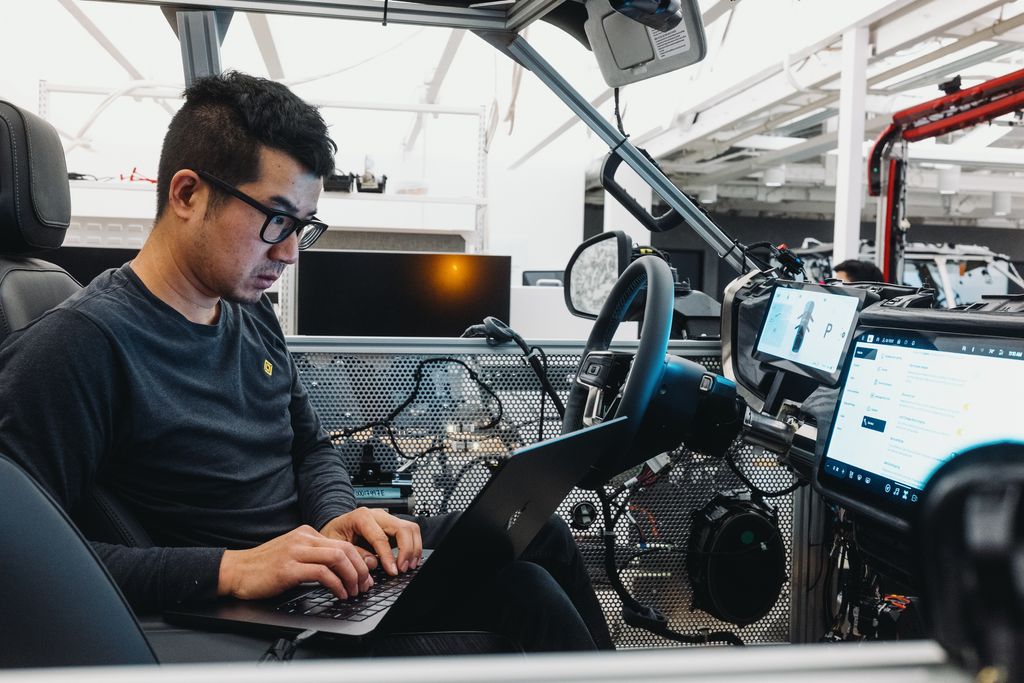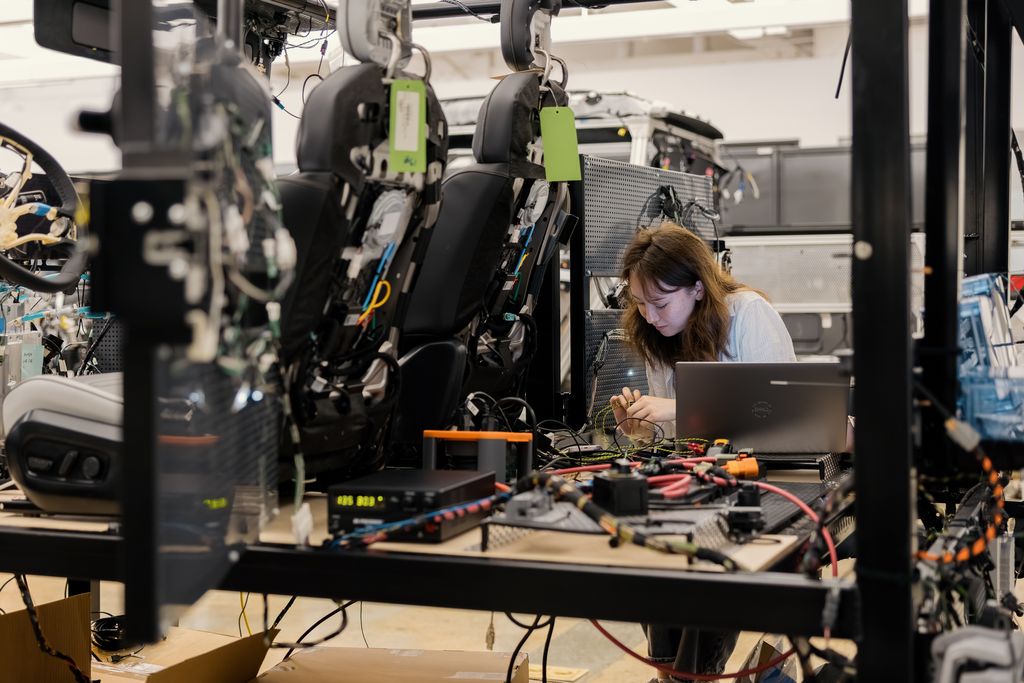Rivian’s joint venture with the Volkswagen Group isn’t just developing the underlying tech for upcoming Rivians, Audis and Porsches. The firm sees a future in selling its electrical architectures to other car companies.
“We’re solving a problem not only for Rivian and VW, but we’re solving a problem for the larger automotive industry,” Wassym Bensaid, Rivian’s chief software officer and a co-head of the joint venture, told reporters on Wednesday. “And that could become basically an opportunity for a standard technology stack that others can use as well.”
RV Tech’s leaders are focusing on the R2 and their first VW models before turning their attention outward.
Photo by: Rivian
Rivian and Volkswagen Group Technologies—RV Tech for short—is working on advanced computing and software platforms that will be shared across both companies. The California-based EV startup gets $5.8 billion in much-needed investment from VW and cheaper electronics thanks to the German giant’s massive scale. In exchange, Volkswagen gets fancy new “zonal architectures” for all of its upcoming electric cars across brands from Skôda to Lamborghini.
These systems of high-powered computers and the software that ties everything together should allow for richer software features and better software updates. But everything besides the foundational systems—like autonomous driving features or user interfaces—will need to be added on by each brand.
The two companies’ $5.8 billion deal gives Rivian a financial runway and VW access to cutting-edge underlying vehicle technology.
Photo by: Rivian
The JV’s leaders think other manufacturers will line up for access, too, now that vehicles are becoming increasingly technology-defined. “On the one hand, software is essential. But software is hard,” Bensaid said.
Indeed, while the entire auto industry has set its sights on seamless and highly connected “smartphones on wheels” for years, many of those efforts have been fraught and slow-going. (Even Rivian and Tesla have had their struggles with software bugs.)
Bensaid said that RV Tech could someday provide the “reference operating system for the entire auto industry,” which car companies could build their vehicles and digital experiences around. Just like how Google distributes Android to lots of smartphone manufacturers, he said, RV Tech could license out the computing and software backbone of electric vehicles.
He said licensing out technology is “a very different ball game and a very different margin profile, from business standpoint, than making cars.” Rivian has yet to turn a profit, and building cars is a low-margin business even for the most established companies. Fellow EV startup Lucid Motors is also eyeing the supplier business, aiming to license out its highly efficient drivetrains to other companies, starting with Aston Martin.
For now, RV Tech is focused on executing on the R2, Rivian’s $45,000 mass-market crossover coming next year, along with the first few VW Group adaptations. Those include a small VW hatchback, an Audi and vehicles from Scout Motors. But it’s keeping one eye on the future too, maintaining a “connection” with other manufacturers and making sure that what it’s developing now can be adapted to cars from other companies.
“So really building the foundations from an architecture standpoint for a solution that can be easily customizable, that can be easily expandable, so that it’s ready once we have bandwidth to go and truly work on those third-party OEM opportunities,” Bensaid said, referring to original equipment manufacturers, which is industry lingo for carmakers.
Competitors aren’t sitting still, and many are making headway on their own more advanced computing platforms. They may very well prefer to keep things in-house, if they can swing it. After all, that vertical integration is what gave Rivian this head start in the first place.
But seeing Rivian-powered VWs on the road could change their minds. The first VW Group vehicle to showcase the fruits of the JV will be the production car based on the ID.Every1 concept, which launches in 2027 for 20,000 euros.
Contact the author: Tim.Levin@InsideEVs.com



